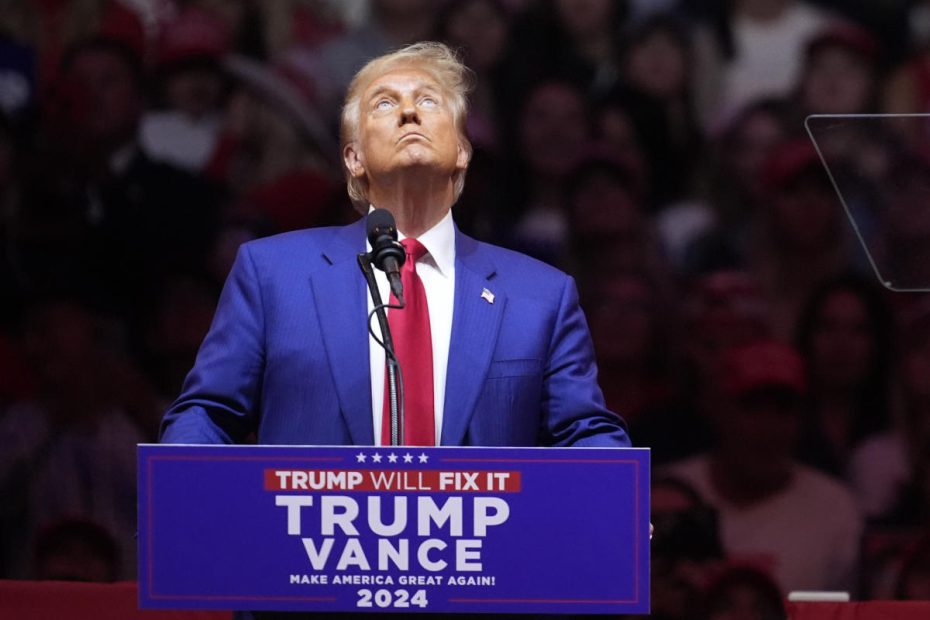WASHINGTON (AP) — A good governance group is warning of dire consequences if President-elect Donald Trump continues to avoid formal transition planning with the Biden administration — saying inaction is already limiting the federal government's ability to grant security clearances and provide briefings to the new government.
Without the planning, says Max Stier, president and CEO of the nonprofit Partnership for Public Service, “it wouldn't be possible” to be “ready to govern on day one.”
The president-elect's transition will be led by Howard Lutnick, CEO of Cantor Fitzgerald, and Linda McMahon, the former wrestling executive who led the Small Business Administration during Trump's first term. They said last month they expected to sign agreements that would begin the formal transition process with the Biden White House and the General Services Administration, which essentially acts as the federal government's landlord.
But those agreements have still not been signed and the pressure is starting to mount.
The delay is hampering the federal government's ability to begin processing security clearances for potentially hundreds of Trump administration national security appointees. That could limit the amount of staff who could work on sensitive information before Inauguration Day on Jan. 20.
It also means that Trump appointees do not yet have access to federal facilities, documents and personnel to prepare for taking office.
The agreements are required by the Presidential Transition Act, which took effect in 2022. They require the president-elect's team to agree to an ethics plan and to limit and disclose private donations.
In that law, Congress set deadlines of September 1 for the GSA deal and October 1 for the White House deal, in an effort to ensure that the new administrations are prepared to govern when they take office. Both deadlines have long passed.
Stier, whose organization works with candidates and incumbents on transitions, said on a call with reporters Friday that a new administration “comes in with the responsibility of taking over the most complex operation in the world.”
“To be able to do that effectively, they absolutely have to have done a lot of preparatory work,” he said, adding that Trump's team has “frankly approached this in a different way than any other previous transition.”
“They have so far ignored all traditions and, in our view, essential agreements with the federal government,” Stier said.
In a statement this week, Lutnick and McMahon said Trump was “selecting personnel to serve our nation under his leadership and implement policies that make American lives affordable, safe and secure.” They did not mention that they had signed agreements to begin the transition. .
A person familiar with the matter said congressionally mandated ethics disclosures and contribution limits were factors in the hesitation to sign the agreements.
Trump transition spokesman Brian Hughes said Friday that the team's “attorneys continue to work constructively with Biden-Harris administration attorneys on all agreements contemplated in the Presidential Transition Act.”
“We will keep you updated once a decision has been made,” Hughes said.
The Trump team's reluctance has persisted despite Biden's White House Chief of Staff Jeff Zients reaching out to Lutnick and McMahon to emphasize the important role the Biden administration and GSA agreements play in initiating a presidential transition.
'We are here to help. We want a peaceful transfer of power,” White House Press Secretary Karine Jean-Pierre said. “We want to make sure they get what they need.”
The unorthodox approach to the presidential transition process is reminiscent of the period immediately following Trump's election day victory in 2016. Days later, the president-elect fired the head of his transition team, former New Jersey Governor Chris Christie, and threw out a transition playbook away. was compiling.
But Stier said that even then, Trump's team had already signed the first agreements that allowed the transition to begin — something that did not happen this time.
'The story is not finished yet. But they are too late,” he said. “And even if they manage to get these deals done now, they will be too late in getting them done.”

